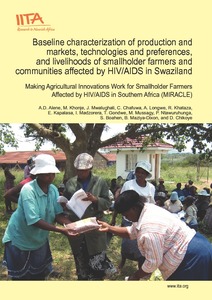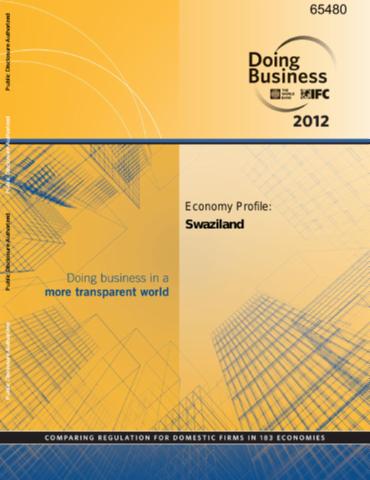This first annual trends and outlook (ATOR) report for Swaziland assesses the performance of the agriculture sector in terms of investment, growth, and poverty and hunger outcomes over the period 2000–2011. The need for monitoring arises from the fact, that Swaziland and other African countries…
Poor land preparation and late planting are among the factors responsible for the decline in food production on customary Swazi Nation Land (SNL). While efforts are being made to develop an improved national land cultivation programme, this process can be helped by identifying factors that…
Under the current challenges of food security, climate change adaptation and mitigation, further provision of ecosystem services and sustainable intensification of agriculture, soil information becomes fundamental to guide wise policies and decisions. This document reviews the present…
To ensure a food-secure future, farming must become climate resilient. Around the world, governments and communities are adopting innovations that are improving the lives of millions while reducing agriculture’s climate footprint. These successful examples show the many ways climate-smart…
The people of Swaziland are its greatest
resource. Yet, social and economic indicators of household
welfare converge to confirm fundamental inequalities in
access to incomes and assets, and the existence of
significant…
Book chapter
Southern African Agriculture and Climate Change: A Comprehensive Analysis examines the food security threats facing eight of the countries that make up southern Africa — Botswana, Lesotho, Malawi, Mozambique, South Africa, Swaziland, Zambia, and Zimbabwe — and explores how climate change will…
Doing business sheds light on how easy or difficult it is for a local entrepreneur to open and run a small to medium-size business when complying with relevant regulations. It measures and tracks changes in regulations affecting 10 areas in the life cycle of a business: starting a business,…
Doing business sheds light on how easy or difficult it is for a local entrepreneur to open and run a small to medium-size business when complying with relevant regulations. It measures and tracks changes in regulations affecting 10 areas in the life cycle of a business: starting a business,…
The VGGT represent the first inter-governmental consensus on the principles and accepted standards for the responsible governance of tenure for governments, international organisations, communities, and the private sector. Their aim is to promote secure tenure rights and equitable access to land…







